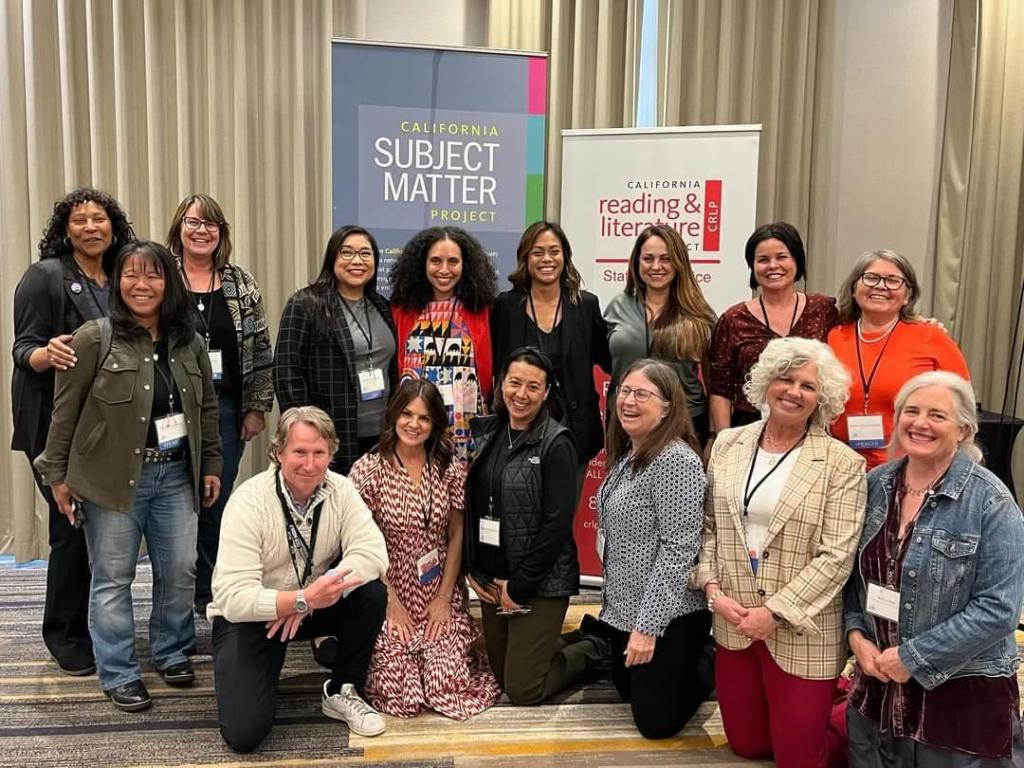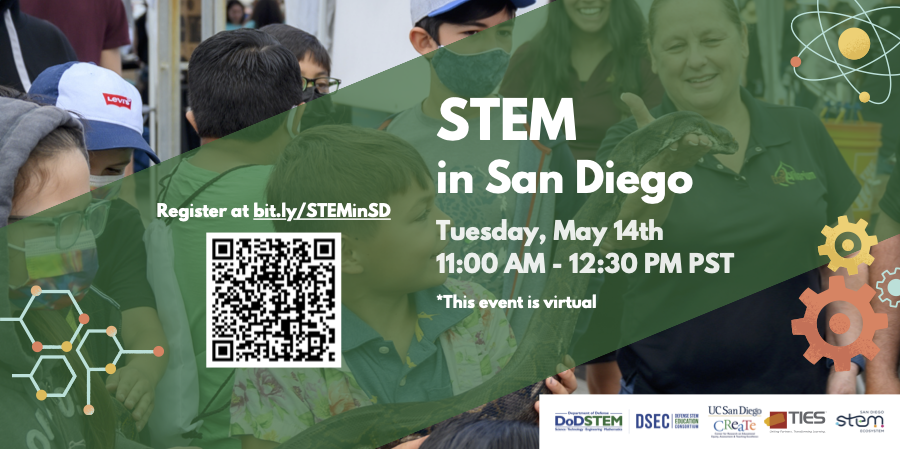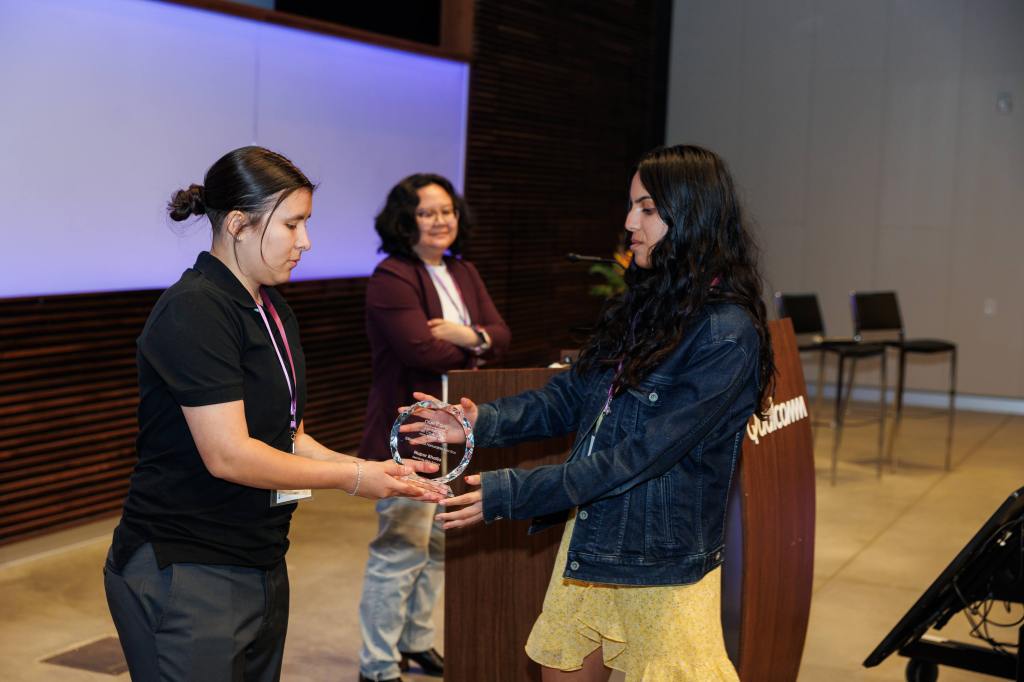“Can We Solve San Diego’s Math Problem Together?” is featured in today’s Opinion section of the San Diego Union-Tribune. Co-authored by CREATE Director Mica Pollock, Associate Director Susan Yonezawa and Math for America San Diego Executive Director Barbara Edwards, the commentary addresses the critical need for collective support of mathematics teachers and teaching in our region. Full text of the article is below.
Can We Solve San Diego’s Math Problem Together?
By Mica Pollock, Susan Yonezawa & Barbara Edwards
On May 3, UC San Diego’s CREATE and Education Studies Department co-hosted a free conference inviting local educators to share their approaches to the new Common Core State Standards and Next Generation Science Standards. Nearly 350 attended, signaling a local hunger to prepare for the shifts in teaching and learning now facing schools and kids. Educators grappled with weaving scientific investigation and engineering design into classrooms and with helping kids discuss and write complex ideas. But interest in deeper learning was particularly pronounced in mathematics. As San Diego emerges from the era of fiscal crisis and bubble testing, it’s time to reinvest in deep, continuous professional development that supports more teachers to teach kids to think – particularly in math.
We’re talking a lot about math at UC San Diego. At CREATE (the Center for Research on Educational Equity, Assessment and Teaching Excellence), in Education Studies, and with many campus and community colleagues in the CREATE STEM Success Initiative (http://create.ucsd.edu/stem-initiative), we’re investigating the local pipeline to skills, degrees and jobs in science, technology, engineering and math. We’re pinpointing learning opportunities that students need, and we’re networking university resources with local partners’ to create those opportunities. The work has surfaced a key leak in the STEM pipeline in San Diego and indeed, the nation: mathematics.
UC San Diego math professors say that many of the region’s college-bound students still don’t understand core math concepts when they end up in their calculus courses. Students can repeat textbook formulas but can’t apply mathematics to challenging problems. Other professors in engineering, physics, chemistry, biology, and computer science have also identified math misunderstandings as a primary problem keeping California and San Diego students from pursuing STEM careers.
Mixing metaphors, we’ve described math as the “Achilles heel of the STEM pipeline.”
Math also keeps many San Diego kids from getting to college, period. A recent study by the San Diego Education Research Alliance (SanDERA; http://sandera.ucsd.edu/) found that more than 20% of San Diego Unified graduates who were ineligible for CSU/UC admission (and now, high school graduation) fell short in mathematics – and nearly 19% of those students were missing Algebra II.
Passing math also doesn’t equal understanding: In some area districts, students can receive diplomas having earned Ds in all of their mathematics courses. Statewide, every additional remedial math course taken in community college lowers students’ chances of completing a certificate or degree by 20+ percent. Many never complete the remedial mathematics required to transfer to universities. In recent interviews with community college students, we found young people stuck in Algebra II, unable to pass finals despite repeated semesters of trying.
These phenomena affect all students, but they particularly affect low-income students, disproportionately kids of color. According to Dr. Alberto Ochoa of SDSU, only 1 in 10 of California’s Latino students (a near-majority in our region) get a four-year degree.
Learning math deeply starts early: pre-K-12 teachers must understand underlying mathematical concepts and recognize and nurture their students’ various approaches. Growing skilled coaches requires professional development where teachers not only discuss math but do math. Colleagues from local universities, nonprofits and districts have long recognized this imperative and persisted in deep professional development with teachers; local teacher leaders have pushed for depth in math thinking even through the era of bubble testing. But a huge region’s needs are vast: many more K-12 teachers want help teaching key concepts like fractions and proportional reasoning, through algebra and beyond. With overwhelming demand for support not yet met, early cracks in the STEM pipeline gush later, as children move forward with a superficial or incomplete understanding of fundamental concepts.
Math remains a key subject holding students back from becoming the college-educated, skilled STEM professionals San Diego leaders say they want. Students can’t complete college if they can’t do math; the Common Core requires students to understand the math they do. Training a local workforce and realizing the Common Core vision in San Diego may require the same thing: helping more educators teach all kids to think deeply about mathematics. For industry, philanthropy, nonprofits, districts, and universities alike, investing in math teachers’ professional development and leadership may be a key cross-sector effort for improving opportunities to learn in San Diego today. On May 3, local teachers showed huge energy to tackle this challenge. Will we meet them there?
Mica Pollock is Professor of Education Studies and CREATE’s Director. Susan Yonezawa is CREATE’s Associate Director. Barbara Edwards is Executive Director of Math for America San Diego (http://www.mathforamerica.org/sandiego).






Leave a comment